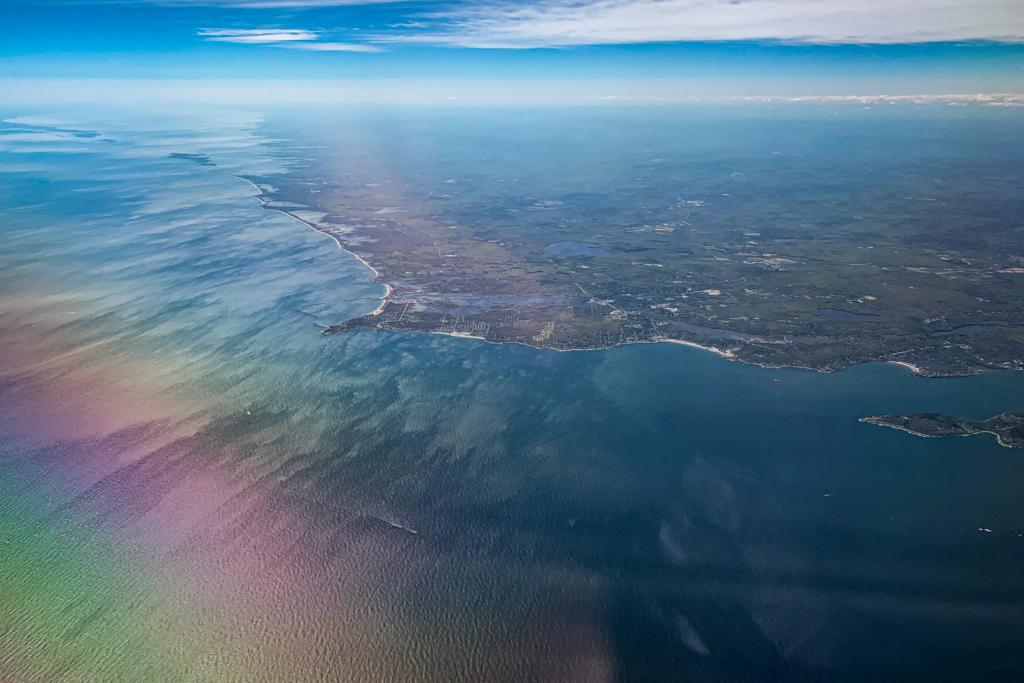After 15 months of record-breaking global ocean warming, the Atlantic Ocean is now undergoing a rapid and mysterious cooling phase. This sudden shift, observed since May 2024, has puzzled scientists and could have far-reaching implications for global weather patterns. According to a report from the British magazine “New Scientist” on August 19, 2024, the equatorial Atlantic has been cooling at an unprecedented rate, raising concerns and questions within the scientific community.
The Sudden Shift: What We Know So Far
The Atlantic Ocean, the world’s second-largest ocean, has been experiencing a significant and rapid drop in surface temperatures over the past few months. Reports from as early as May 2024 highlighted the cooling waters off the coast of Nova Scotia, Canada. Canadian government data indicated that the ocean temperatures were reverting to normal or even below normal levels in some areas, according to Lindsay Beazley, a biologist with the Canadian Department of Fisheries and Oceans.
This trend has continued throughout the summer, with the National Oceanic and Atmospheric Administration (NOAA) reporting that, since June, sea surface temperatures in the equatorial Atlantic have been 0.5 to 1°C cooler than the average for this time of year. This rapid cooling is particularly surprising given the recent period of intense ocean warming, leading to what NOAA described as “record-speed temperature shifts.”
A Mysterious Phenomenon
The abrupt cooling of the Atlantic is perplexing scientists. Typically, such a cooling would be attributed to the strengthening of the trade winds, which can bring cooler water to the surface. However, Franz Philip Tuchen, an oceanographer at the University of Miami, told “New Scientist” that the usual mechanisms, such as strong trade winds, have not been observed. “We’ve gone through the list of possible mechanisms, and nothing matches so far,” Tuchen remarked, highlighting the enigmatic nature of this phenomenon.
Michael McPhaden, another oceanographer, echoed these concerns, stating that this is just the latest in a series of unusual events in a climate system that has been “derailing for several years.” The unpredictability of these changes underscores the complexity of Earth’s climate system, where multiple factors interact in ways that are not yet fully understood.
The Potential Onset of an Atlantic Niña
If the current cooling trend persists for another month, it could signal the onset of an “Atlantic Niña,” a phenomenon analogous to La Niña in the Pacific Ocean. La Niña events are characterized by cooler-than-average sea surface temperatures in the central and eastern Pacific, and they typically have significant impacts on global weather patterns. An Atlantic Niña would be the opposite of the more commonly known El Niño, which periodically warms the Pacific and, to a lesser extent, the Atlantic.
The potential for simultaneous La Niña conditions in both the Atlantic and Pacific Oceans is particularly concerning. According to McPhaden, this could lead to a “tug-of-war” between the cooling Pacific and the warming Atlantic, with unpredictable consequences for global weather. Such a scenario could disrupt weather patterns across the globe, potentially leading to extreme events such as droughts, floods, and hurricanes in regions unaccustomed to such phenomena.
The Broader Climate Context: An Ocean in Flux
The Atlantic Ocean’s sudden cooling is occurring within a broader context of unprecedented climate changes. Over the past decade, the world’s oceans have absorbed the majority of the excess heat generated by human-induced climate change, leading to widespread warming, marine heatwaves, and coral bleaching. The recent cooling of the Atlantic, however, suggests that the ocean’s behavior is becoming increasingly erratic, with potential consequences that are difficult to predict.
Ecological Impacts: A Marine Environment at Risk
The cooling of the Atlantic Ocean is not just a meteorological anomaly; it also poses significant risks to marine ecosystems. The rapid temperature shift could disrupt the delicate balance of marine life, particularly in sensitive areas like coral reefs and fish spawning grounds. Species that are adapted to warmer waters may find themselves in increasingly inhospitable environments, leading to shifts in species distributions, population declines, and potentially even extinctions.
Cold-water species, on the other hand, might temporarily benefit from the cooling, but the unpredictability of these changes makes it difficult for ecosystems to adapt. This could result in a cascade of ecological effects, with consequences for fisheries, tourism, and coastal communities that depend on healthy marine ecosystems.

The Human Dimension: Implications for Weather and Climate Policy
The potential onset of an Atlantic Niña, combined with the cooling of the Pacific, could have wide-ranging impacts on global weather patterns, affecting everything from agriculture to disaster preparedness. Regions that are typically dry could experience unseasonal rainfall, while areas that rely on regular monsoon patterns might face drought conditions.
Such unpredictability poses a significant challenge for policymakers and climate scientists. Traditional models may no longer be sufficient to predict future climate conditions, necessitating new approaches to climate modeling and risk assessment. The potential for more frequent and severe weather events also underscores the need for robust disaster preparedness and climate resilience strategies at local, national, and global levels.
The Science Behind the Mystery: Exploring Possible Causes
While the exact cause of the Atlantic’s rapid cooling remains unclear, several hypotheses are being explored by scientists. One possibility is that the cooling is linked to changes in the Atlantic Meridional Overturning Circulation (AMOC), a major ocean current that helps regulate climate by transporting warm water from the tropics to the North Atlantic. A slowdown or disruption of the AMOC could lead to cooling in the North Atlantic, with potential knock-on effects for the equatorial regions.
Another hypothesis is that the cooling is related to volcanic activity, which can inject aerosols into the atmosphere, reflecting sunlight and cooling the Earth’s surface. However, recent volcanic activity has been relatively low, making this an unlikely sole cause. Additionally, the interaction between the atmosphere and ocean, particularly in response to recent El Niño events, may have played a role in the observed cooling, although this is still a subject of ongoing research.
The Role of Human Activities: A Complex Interplay
Human activities, particularly the emission of greenhouse gases, have been the primary driver of global warming. However, the cooling of the Atlantic raises questions about the complex interplay between human-induced climate change and natural variability. While the overall trend of global warming remains clear, regional and temporal variations, such as the Atlantic’s cooling, highlight the need for a nuanced understanding of climate dynamics.
This complexity underscores the importance of continued research and monitoring of the world’s oceans. The deployment of advanced oceanographic instruments, satellite observations, and climate models will be crucial in unraveling the causes of the Atlantic’s cooling and predicting its future behavior.

The Ecology Challenge: Navigating Uncertain Waters
The Atlantic Ocean’s rapid cooling presents a new set of ecological challenges. As scientists work to understand the underlying causes, there is an urgent need to consider the potential impacts on marine ecosystems and the communities that depend on them. Adaptation strategies will be critical in helping both ecosystems and human societies cope with the changing climate.
One of the primary ecological challenges will be managing the effects of temperature shifts on marine biodiversity. Conservation efforts may need to be reoriented to address the changing distributions of species, particularly those that are already vulnerable due to overfishing, habitat loss, and pollution. Protecting critical habitats, such as coral reefs and estuaries, will be essential to maintaining the resilience of marine ecosystems.
Preparing for the Future: A Call to Action
The Atlantic’s mysterious cooling is a reminder of the unpredictable nature of climate change and the urgent need for comprehensive climate action. As the world continues to grapple with the effects of global warming, the potential for sudden and unexpected changes in climate patterns underscores the importance of preparedness and resilience.
Governments, scientific institutions, and civil society must work together to enhance our understanding of the Earth’s climate system and develop strategies to mitigate and adapt to its impacts. This includes investing in climate research, supporting the development of innovative technologies, and strengthening international cooperation on climate policy.
Conclusion: Navigating the Unknown
The rapid cooling of the Atlantic Ocean is a phenomenon that has left scientists and policymakers alike searching for answers. While the causes of this cooling remain uncertain, its potential implications for global weather patterns and marine ecosystems are clear. As the scientific community continues to investigate this mystery, there is a pressing need for a coordinated response to address the challenges posed by an increasingly unpredictable climate.
In the face of these challenges, the importance of resilience, adaptation, and proactive climate action cannot be overstated. By deepening our understanding of the Earth’s climate system and taking decisive steps to protect both natural and human environments, we can navigate the uncertain waters of the future with greater confidence and hope.
Related Content
- Protect the Ocean Aluminum Metal Sign – 1 Piece, Vintage Circular Eco Awareness Wall Decor
- Seagrass Meadows in Peril: Tropical Herbivores on the Move Due to Ocean Warming
- Navigating the Tides: The Impact of Ocean Warming on Subtropical Seagrass Meadows
- Subtropical Seagrass Meadows: How Ocean Warming Threatens a Vital Marine Ecosystem
- Unveiling Mimas’ Hidden Secret: A Youthful Ocean Beneath Saturn’s Tiny Moon
- Ocean Heating Raises Alarming Concerns: A Glimpse into a World 3.0°C Warmer
- ‘We’re changing the clouds’: Unintended geoengineering test is warming the Atlantic
- Atlantic Ocean circulation nearing ‘devastating’ tipping point, study
- Periods of extreme heat are becoming more common. Here’s what to know
- Is the Atlantic Overturning Circulation Approaching a Tipping Point?
- Studies Say Climate Change Weakens Key Atlantic Ocean Current

